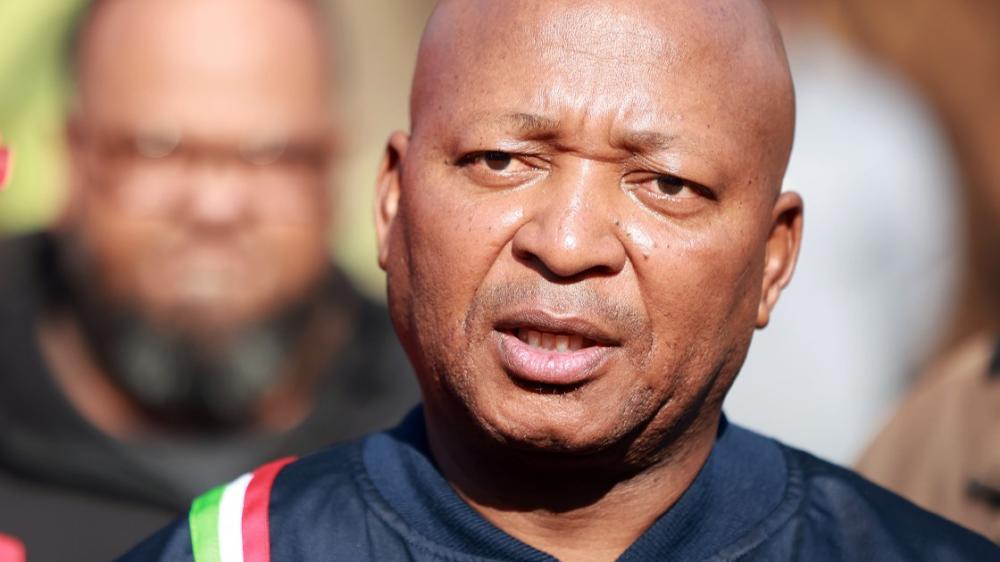Africa-Press – South-Africa. PA deputy leader Kenny Kunene has lost his appeal to overturn an order that he retract remarks about EFF leader Julius Malema that amount to hate speech.
The Johannesburg high court ruled on Tuesday that Kunene calling Malema “a cockroach” amounted to hate speech in contravention of the Promotion of Equality and Prevention of Unfair Discrimination Act.
Kunene was ordered to issue an unconditional written and oral apology to Malema. He was also interdicted and restrained from using the slur against Malema in future.
This must be published within one month of the date of the order by judge Stuart Wilson, with two judges concurring.
In the Equality Court in January 2023, judge Motsamai Makume found Kunene guilty of hate speech of making derogatory comments about Malema in November 2021.
During a TV interview about coalition negotiations, Kunene threatened to “deal with this little frog” in reference to Malema. “Julius is just an irritating cockroach that now I must deal with publicly,” he said.
In a responding affidavit, Kunene argued that when he uttered the words it was in reaction to a statement by Malema two days before, referring to the PA as a party of amabhantinti” (prisoners).
On appeal, Kunene argued:
his utterances fell outside the ambit of the act as they were personal attacks on Malema, rather than on any group of which he is a member;
that political attacks of that nature cannot amount to hate speech as political affiliation is not a ground on which the act recognises that hate speech can be addressed; and
that a particularly wide margin of appreciation must be afforded to political actors who attack each other in pungent or unpleasant terms.
Since Kunene did not threaten Malema with violence or explicitly incite violence against him, it was argued his words could not reasonably be construed as harmful.
But Wilson concurred with Makume that the use of the offending phrase against Malema on four occasions by Kunene was hate speech.
“Whatever Kunene intended, the use of the word cockroach is internationally recognised as hateful of those to whom it is directed. It is also, if not itself an incitement to do them harm, clearly indicative of an attempt to place them beyond the protection of ordinary human decency,” Wilson said.
“The political use of the term cockroach is always and everywhere a call to treat those to whom the term is directed as objects of hate. The use of the word cockroach would reasonably been understood as evincing a clear intent to harm and promoted hatred of Malema because he was one of Kunene’s political foes and because his belief and political conscience were not those of Kunene.”
Wilson said the constitution entrenches the right to free expression but recognises two types of limits on it:
The first is that the right to free expression does not extend to propaganda for war, incitement of imminent violence or “advocacy of hatred based on race, ethnicity, gender or religion, and that constitutes incitement to cause harm”.
The second is a limitation that applies to “words based on one or more of the prohibited grounds, against any person, that could reasonably be construed to demonstrate a clear intention to be harmful or to incite harm and to promote or propagate hatred”.
“The textual definition of ‘hate speech’ outlined in the act, read purposively in its statutory setting, was in our view designed, at least in part, to prevent political speech in South Africa from degenerating into an act of mutual dehumanisation.
“The act sets modest outer limits for social and political interaction.”
For More News And Analysis About South-Africa Follow Africa-Press






